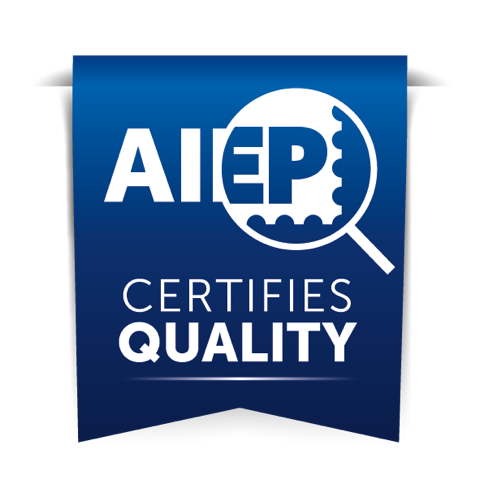The difference?
study and application since 1954

aiep quality label
Code of Conduct
Article 1
AIEP Quality Label objectives
As the only worldwide association of philatelic experts, the AIEP has introduced the AIEP Quality Label in order to offer a strategic partnership with worldwide philatelic auction houses and companies, and to improve fair trade in philatelic business with the aim to protect collectors from fakes and forgeries
Article 2
Ethical principles
The AIEP experts abide by the following ethical and moral principles:
- Philatelic expertizing is concerned with the examination of the authenticity and condition of stamps or postal history items. It is undertaken with honesty, integrity, impartiality and an understanding and a specialized knowledge of the subject.
- The expert is bound by professional secrecy. He is relieved of this obligation only when dealing with public authorities for cases which fall under penalty of law.
- The ethics of the profession preclude a public debate between experts of differing views. The expert may express his opinion on different items in public but he shall not pass judgement on the work of a colleague unless he is required to do so by a competent authority.
- The good faith of an expert must not be questioned as long as no conclusive evidence to the contrary is available.
Article 3
Expertizing rules
- The expert shall examine the items submitted to him for their authenticity and condition.
- The expert shall carry out his work to the best of his knowledge and belief and in accordance with the current state of knowledge in the field of philatelic expertize.
- The expert issues certificates (for genuine items) and statements (for forgeries).
- A certificate shall contain: a detailed description of the item; the findings of the expert (genuine, faked, or partly faked, etc.); a detailed description of the quality and state of preservation; in case the expert has signed, initialled or otherwise marked the item, such signature,
- initials or mark should be mentioned; a photograph, photocopy or scan of the item; date and signature.
- A statement is issued for all forged items and shall contain a detailed description, along with the date and signature of the expert.
- The expert should not sign, initial or mark an item, unless the owner of the item requests it.
- If an expert considers it appropriate not to express an opinion on an item submitted to him, he may refrain from doing so and refer the consignor to another expert or contact the latter himself on behalf of the consignor.
- The expert shall be free to determine the fees for his services, but he must inform the consignor in advance.
- The expert shall be liable for erroneous certificates only up to the amount of his fees, unless it can be proved that he acted wilfully and/or out of negligence. In that case, he shall be fully liable for his erroneous judgement.
- Consignors who submit philatelic items for expertising to a member of the AIEP are deemed to have unconditionally accepted the expertising regulations of the AIEP.
Article 4
AIEP Quality Label
The AIEP can grant a Company (Licensee) the limited, non gratuitous, non-exclusive, non-sublicensable right to use the AIEP Quality Label for the sole purpose to inform third parties of its compliance to the terms of the AIEP Code of Conduct. For this purpose, the AIEP Quality Label can be used on the cover of auction catalogues or price lists or on any other company advertisement.
Article 5
Quality Label obligations
- The company that has been granted the AIEP Quality Label accepts the ruling of AIEP experts regarding the authenticity of philatelic items as described in the AIEP Code of Conduct.
- If granted the AIEP Quality Label, the company shall amend its Business Terms and Conditions in order to comply with this Code of Conduct, without prejudice to the effectiveness of this AIEP Code of Conduct towards third parties.
- The company shall inform purchasers of philatelic items about the contents of this AIEP Code of Conduct.
The President
Dr. Thomas Mathà
The Hon. Secretary
Igor Rodin
